Graham Reid | | 10 min read
Paul McCartney : Waterfalls
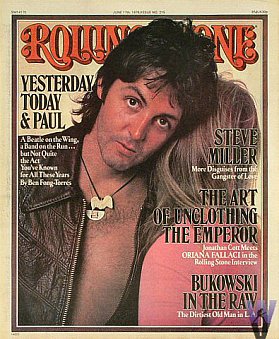
Paul McCartney once commented that his solo career since the Beatles -- now stretching to more than four decades -- was largely undiscovered territory.
That’s true.
But can anyone name anything from his ‘79 album Back to the Egg?
And more to the point, why would they want to?
But this is also the man -- once known as Mr Thumbs Aloft -- who hardly ever explored or exploited that undiscovered territory himself in concert or (until the past five years with the McCartney Archives Collections) on CD reissue compilations.
There is a terrifically ballsy rock’n’roll compilation album to made from McCartney’s extensive back-catalogue (Girls School, Jet, Monkberry Moon Delight, Helen Wheels etc) just as there is a collection of beautiful but seldom-heard ballads which would make even the most jaded and Macca-weary listener sit up and pay attention.
There could even a box set of remixes and avant-garde work.
The classical stuff we might charitably overlook (as serious classical people do) and few would go near his numerous mawkish ballads . . . unless a ballroom in Las Vegas reinvents itself as palace of schmaltz for old men and their younger wives.
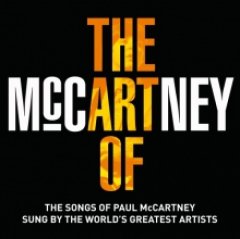 But now -- somewhat belatedly we might suggest -- a veritable galaxy of stars and smart lesser lights have fallen into place to salute McCartney's solo career on the album The Art of Paul McCartney (right).
But now -- somewhat belatedly we might suggest -- a veritable galaxy of stars and smart lesser lights have fallen into place to salute McCartney's solo career on the album The Art of Paul McCartney (right).
It comes in an absurdly uninteresting cover but (see here) you could hardly fault the line-up of homage-paying pals, familiars and fans.
Among the many luminaries on these newly commissioned recordings of of McCartney songs from his immense back-catalogue are Bob Dylan, Alice Cooper, BB King, Allen Toussaint, Barry Gibb, Brian Wilson, Def Leppard, Dr John, Kiss, Smokey Robinson . . .
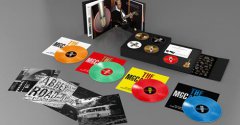 All well and good, but one day you'd hope for a true alt-rock look at Sir James Paul McCartney's vast catalogue because there is a lot of very interesting material there to discover . . .
All well and good, but one day you'd hope for a true alt-rock look at Sir James Paul McCartney's vast catalogue because there is a lot of very interesting material there to discover . . .
So here begins a decade-by-decade look back at Paul McCartney's post-Beatles recording career which, of course, comes with a consumer warning, caveat emptor and all that.
But you could make your own compilations to your taste -- and they will be surprising, and surprisingly good.
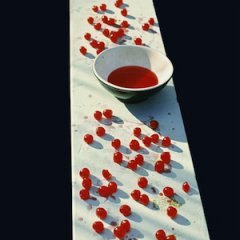
McCartney (1970)
Low-key, acoustic homegrown recordings released at the same time as the Beatles’ Let It Be as a declaration of independence. Contains the rocked up Maybe I’m Amazed, the gentle Every Night (which Phoebe Snow turned into a hit) and That Would Be Something.
Undercooked and mostly half-realised ideas, but Teddy Boy -- rejected by the Beatles -- and Junk stand up, and although not a great album it was by no means the disappointment it was judged to be at the time.
Opportunities lost to be sure, but he was in a bitter divorce with his former bandmates and this album was inevitably compared with the best of that band.
For a more in-depth consideration see here. You can stream it for free here.
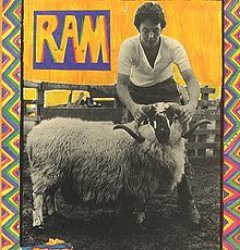 Ram (1971)
Ram (1971)
Genuine signs of life here and in retrospect one of Macca’s finest albums. It is deservedly an Essential Elsewhere album (where it is given full consideration). Co-credited to wife Linda, it contains the irresistibly catchy Uncle Albert/Admiral Halsey, the rollicking Monkberry Moon Delight (which sounded written for Screamin’ Jay Hawkins who later sensibly covered it) and the long awaited stretch of McCartney rock muscles in Back Seat of My Car.
Usual domestic matters came up (Long Haired Lady about his new wife, Heart of the Country, Eat at Home) and the quirky 3 Legs (which might have been a reference to the three other former Beatles).
First shots in the long-running sniping exchange with Lennon too: Dear Boy and Too Many People sound very pointed. Lennon thought so too and parodied the Ram cover in a postcard which came with his next album Imagine (which also included the bitter swipe How Do You Sleep?). The initial CD reissue added the vacuous pop hits Another Day and Oh Woman which rather detract from it, but this is otherwise an album to acclaim.
And that became more clear with the McCartney Archive Reissue in 2012: see here.
Free stream is here.
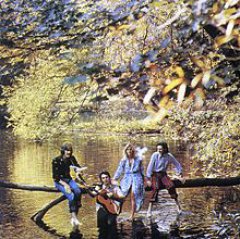
Wild Life (1971)
First flight for the Wings band and the interesting opener is a live jam with McCartney yelping nonsense lyrics and calling the chord changes. Courageous.
Not a good album -- not a terribly bad album wither -- but Lennon took exception to the particularly moving ballad Dear Friend and Someone People Never Know which he said (probably correctly) were aimed at him.
Bonus tracks on the CD reissue include Give Ireland Back to the Irish (banned by the BBC and a better idea than a song) and the limp Mary had a Little Lamb.
An album of only marginal interest.
Free stream here.
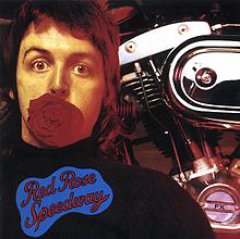
Red Rose Speedway (1973)
The acclaimed Band on the Run was only a matter of a few months away but on this all-but-forgotten album McCartney was clearly laying the ground and upping the stakes for himself.
There’s the four-fragment Medley, the schmaltzy successful and melodically pure My Love and the oddly appealing When the Night.
The bonus tracks on the CD reissue elevate this even further: the peculiar C Moon and the ropy rock of Hi Hi Hi and The Mess, plus the loping and stupid McCountry track I Lie Around.
Much better than prejudice might allow. And we await the McCartney Archive Reissue which -- if it includes jam sessions etc - could be damn intersting.
Free stream here.
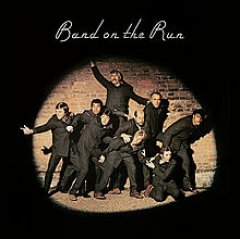
Band on the Run (1973)
Three decades and more along and this still stands up. Triumph out of adversity too. Wings -- such as it was -- broke up on the eve of the recording so Macca, his wife and (much under-rated musical contributor) Denny Laine went to Lagos, Nigeria and recorded the core of this under considerable emotional pressure. Macca was even mugged at knifepoint on the street.
Highpoints are many and as a conception it hangs together seamlessly. His deliberately Lennonesque Let Me Roll It is still subject to conjecture (but it works) and his track Picasso’s Last Words was written as a bet with Dustin Hoffman who asked if he could write a song around a phrase he was given, they were the last words of Picasso.
Macca won the bet.
The bonus tracks on the CD reissue are the party-rock single Helen Wheels (named after the Wings tour bus) and its flipside Country Dreamer, two sides of the Macca musical personality.
Along with Ram, one of the few “essential” McCartney albums and the 2010 remastered reissue is given full consideration here.
Free stream here.
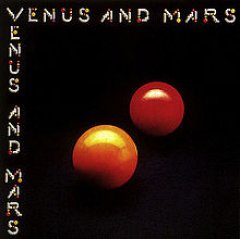
Venus and Mars (1975)
Seen at the time as a pallid, stadium-pleasing attempt to replicate Band on the Run . . . An assessment which still holds. Macca was at his post-Beatles peak but this strains for effect. He retreated to composing those White Album-period piano throwaways which the Rutles acutely parodied (You Gave Me the Answer) but gets away a neat bluesy Letting Go and the pop-smart Listen to What the Man Said.
The best track belongs to emerging Winger Jimmy McCullouch whose Medicine Jar betrayed an unnatural interest in artificial stimulants. Macca and band were touring heavily and this album feels like filler and half-baked ideas knocked off to capitalise on their profile. It still topped the Billboard charts -- and some might say if McCartney was on the receiving end of sterner public rejection for mediocre work at this time then things might have turned out differently.
However there were stadiums filling so . . .
Free stream here.
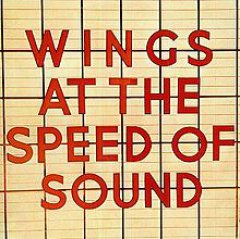
At the Speed of Sound (1976)
The sappy Silly Love Songs (a hit however, we should remind ourselves) works against this album for most people, but it is one of McCartney and Wings’ better efforts -- and for once the band members get credit and rare democracy is evident.
Ragga-reggae man Shinehead resurrected the likeable Let ‘Em In in the mid Nineties; Laine offers the unMacca-like Note You Never Wrote (sounding more like an outtake from the terrific but forgotten McGear album by McCartney’s brother Mike recorded at this time); and guitarist Jimmy McCulloch swayed in with Wino Junko (another with an unnatural interest in . . .) Denny did his strained white-soul pop on Time to Hide.
Interesting stuff all round and it hinted at a direction that McCartney never explored. Bonus tracks on the reissued CD are the music hall instrumental Walking in the Park (written by Paul’s father) and Bridge on the River Suite (both which appeared under the name The Country Hams). There was also the folk-country Sally G.
Free stream here.
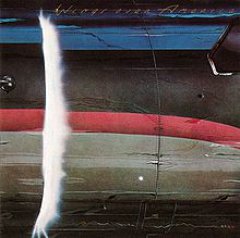
Wings Over America (1976)
To capitalise on what had been a remarkable year for his new band, and which must have felt like some kind of vindication -- Lennon's career was languishing after the middling Rock'n'Roll set, and neither Harrison nor Starr (who had cracked a surprising number of solo hits) were up to much of any consquence -- McCartney celebrated the year with this in-time-for-Christmas triple set recorded live.
All hits big hits and few album favourites, and a fair smattering of crowd-pleasing Beatles songs sent this one to the top of the American charts and did the business everywhere. A golden year all round and fine document of it.
The expansive 2013 reissue from the on-going McCartney Archive Collection series is considered in depth here.
Free stream here.
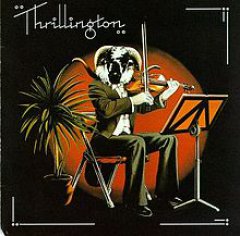
Thrillington (1977)
Everyone is allowed a little self-indulgence, it's just that the wealthy can indulge in a rather more grand manner, as McCartney did with this album released under the nom-de-disque "Percy "Thrills" Thrillington.
It is an instrumental version of Ram and was intended for release shortly after that album, but Wings put paid to that. The music is rendered in the manner of a Thirties/vaudeville orchestra (with the Mike Sammes Singers on some tracks) and that doubtless appealed to McCartney as he had previously referred to the style (notably on When I'm 64 which was written when he was a teenager).
Perhaps it was a wee tribute to his father also (as were parts of the debacle that was Give My Regards to Broad Street) but either way it remains a minor oddity in the McCartney catalogue.
He wrote the liner notes (under the pseudonym Clint Harrigan) about the fictious Thrillington but the orchestration was actually done by arranger Richard Hewson. It sold nothing on release and it wasn't until '89 when McCartney admitted he was Thrillington that the album achieved any cachet and was sought out by collectors. It was reisssued in the mid Nineties to equally little interest.
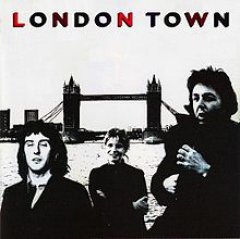
London Town (1978)
Some writers would have this as a much overlooked album. It isn’t, it is tedium revisited. For some reason McCartney decided to record shipboard in the Caribbean (He was running out inspiration? Trying to recreate the Lagos relocation experience?) It didn’t work.
The album has a lazy, incomplete (but always polished) feel. Band members quit and Linda was pregnant, sessions were periodically halted. It contained the partial hit With a Little Luck, the rockabilly Name and Address, and not much else, unless you consider Girlfriend written with Michael Jackson in mind (who subsequently covered it).
The bonus CD tracks are Mull of Kintyre and -- much better -- the blistering Girls’ School where, in the year of UK punk, the old boy proved he could still foot it with the rockers.
Free stream here.
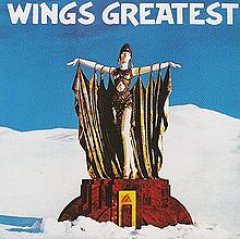
Wings Greatest (1978)
As mentioned, there is a great McCartney compilation to be made.
But it won’t, as this does, pick the obvious hits. It will be full of his rock tracks.
This one is the public face: Another Day, Silly Love Songs, Live and Let Die and so on.
A crowd-pleaser when he had just about exhaustedc pleasing a crowd (on albums anyway) as witnessed by his next studio album.
This was just the McCartney hits --- but not “the greatest” songs of his solo career to date.
Free stream here.
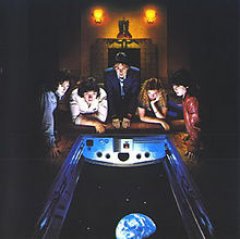
Back to the Egg (1979)
The late Seventies/early Eighties were a dire period for McCartney and the various members of his band.
Egg, despite McCartney wanting to rock it up, comes off as a lazy and unfocused album (another year, another Macca album) and the songs are short fragments sewn together. Old Siam Sir is Macca in ragged rock mode and Arrow Through Me is sweet, but otherwise this is his nadir.
Even the guitar-guest heavy Rockestra Theme doesn’t elevate it much. No hits sprung, the final album under the Wings name, and the extra tracks on the CD are a fair measure of the period: Wonderful Christmas Time and Rudolph the Red Nosed Reggae. Huh?
Free stream here.
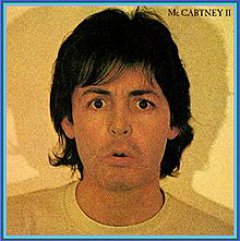
McCartney II (1980)
A decade after he freed himself from That Band with the homespun McCartney, he revisited the idea post-Wings.
Not a bad idea or album either: with its cheap Casio sound (Temporary Secretary), echoed guitar (On The Way, Nobody Knows), tossed -off instrumentals and the delicious melody of Waterfalls.
By now however his lyrics had reached new depths and the bareness of this approach laid them open.
Three extra tracks on the reissued CD included the sampled fake-funk of Check My Machine but regrettably not the great live version of Coming Up which appears on none of the McCartney reissued albums . . . until recently.
His McCartney Archive Collection reissue included it, and opened the album up much more . . . and wow!
For a more in-depth consideration of that see here.
Free stream here.
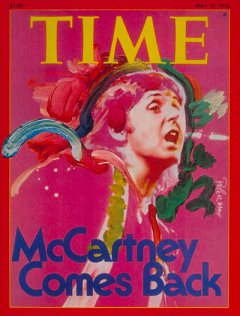 And so . . .
And so . . .
McCartney -- after taking Wings to sales matching the Beatles', making it to the cover of Time and so on -- ended his first decade pretty much back where he started.
The Eighties were looming and he seemed directionless . . .
Could he come back?
Again-again?
And . . .
Yet again?
See Paul McCartney Solo Career Part 2.

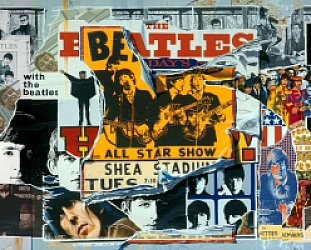
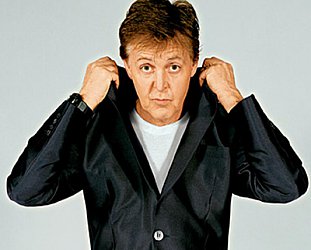
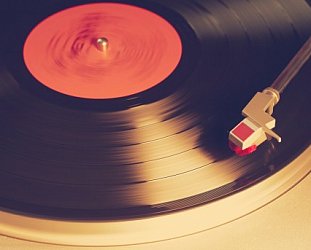
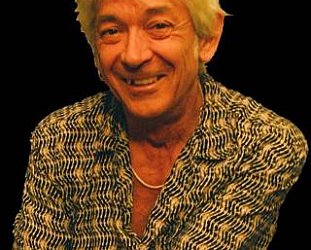
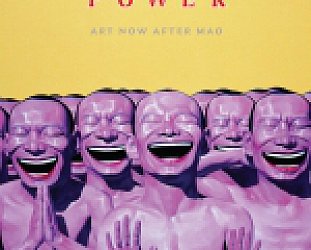
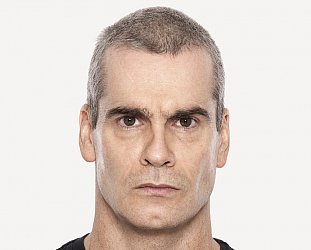
Lex - Sep 1, 2009
I'd like to put in a word for Wild Life.
SaveIf my history is correct, this is prior to any sign of fame for Wings, and in some ways is a little like the first album "McCartney" in that sense.
I like the jam feel that some of the songs have. Bip Bop is a good example if this. It feels ad libbed to an extent but it works, and children like it.
I like the one take feel of some of the music. Wild Life with it's "Aminals in the zoo..." flub.
McCartney uses that ragged tail end of his voice on this album too. Oh Woman, Oh Why. It's when this is missing that you can tell he wasn't really trying.
"Love is Strange" is one of those tracks that can hit a sweet spot with a group of 20-somethings - Like going through an Astral Weeks phase - It's just so true.
My 1987 CD reissue didn't have Give Ireland Back to the Irish, but did include "Mary had a Little Lamb", which I agree was unnecessary.
All in all one of my favourites.
post a comment